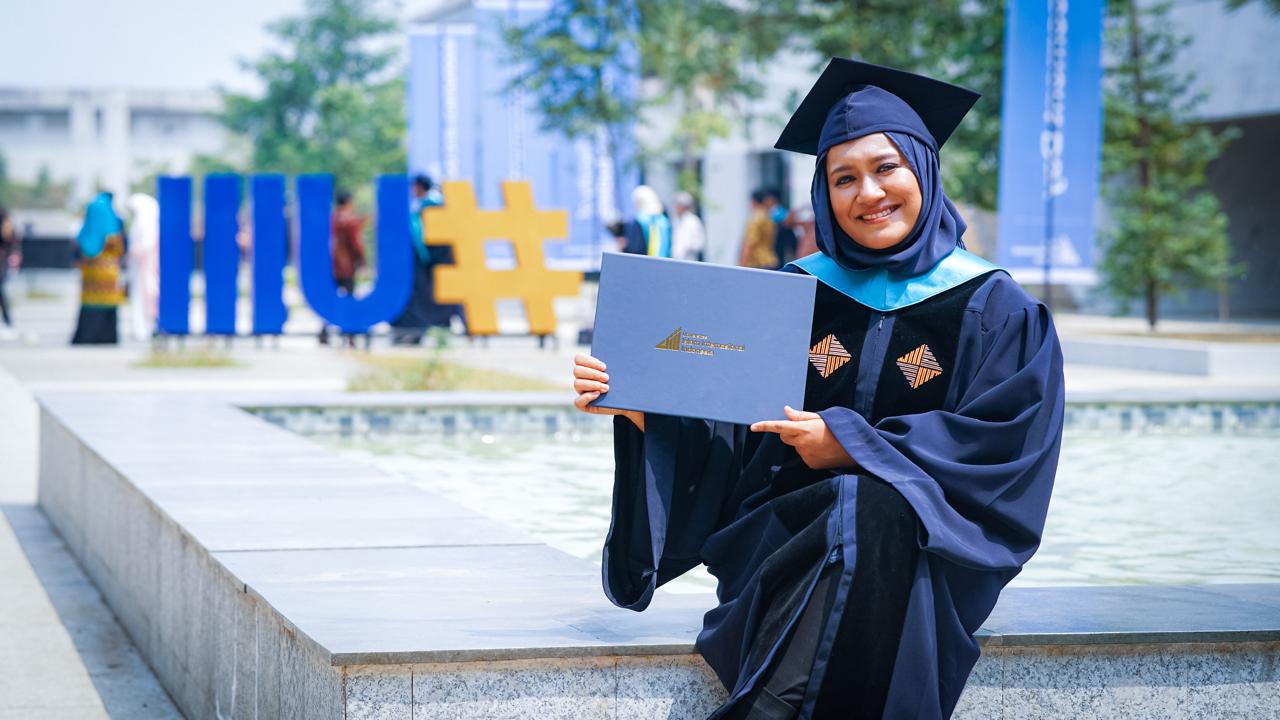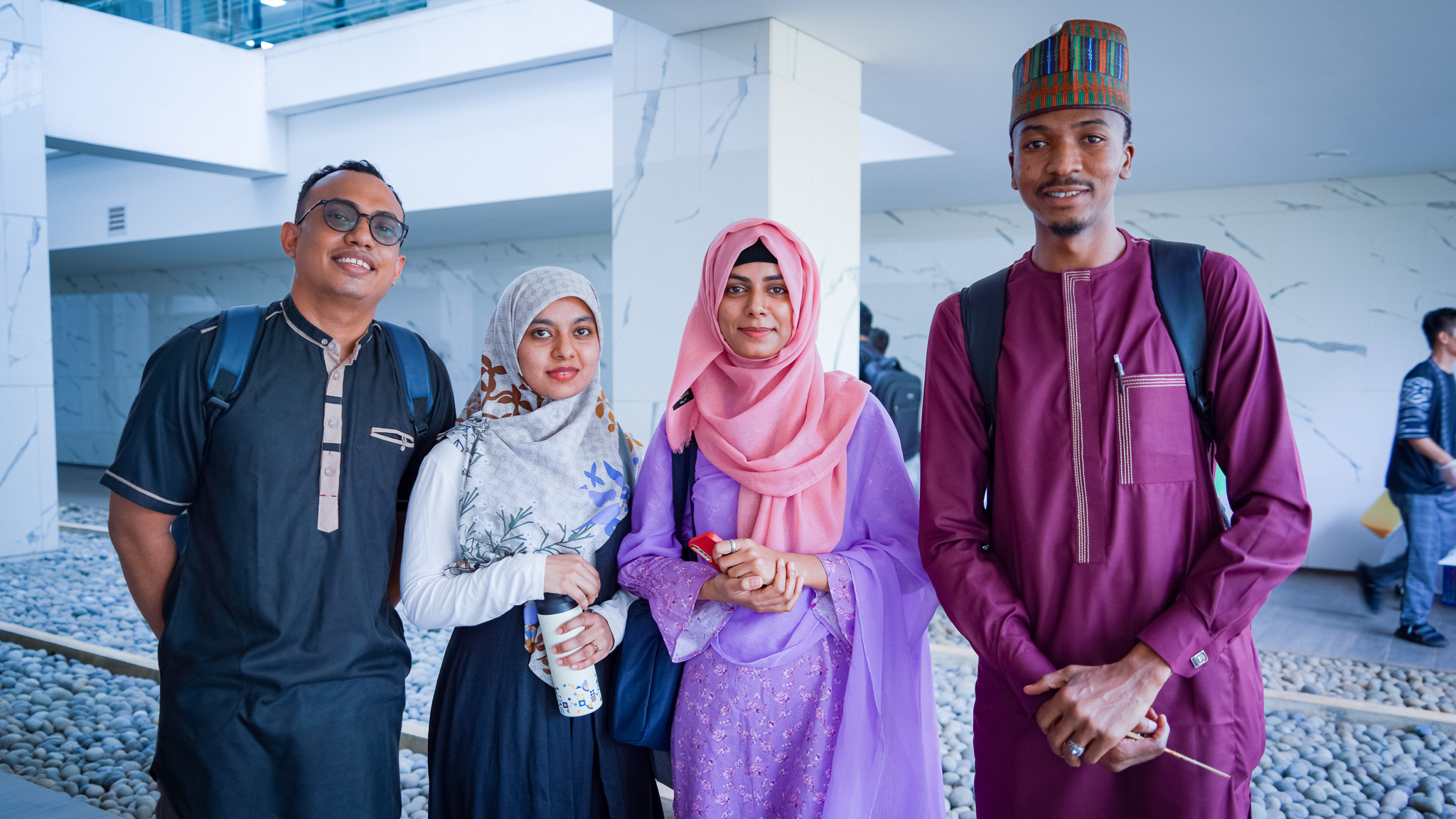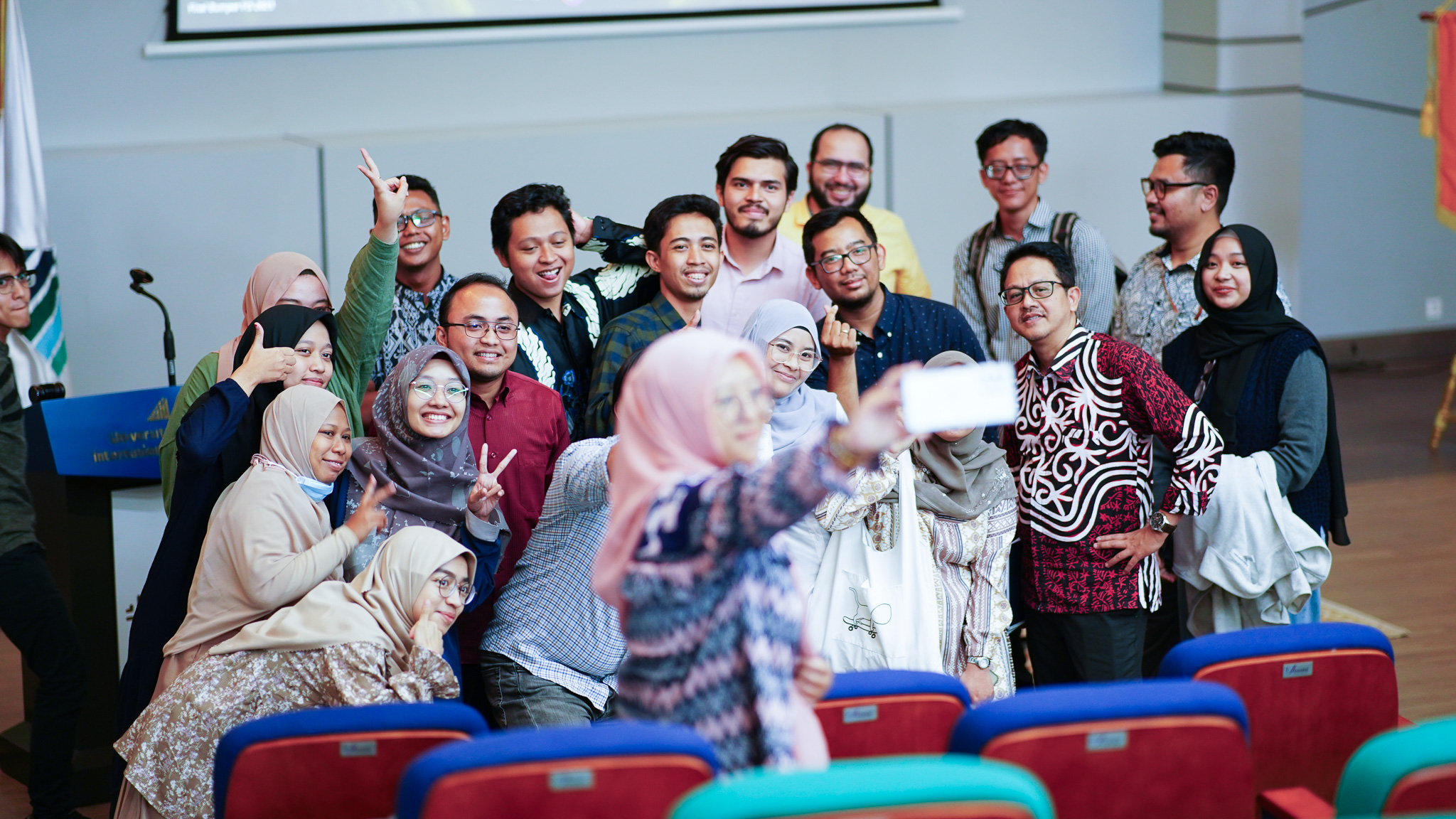Alumni, How’s Life? Let’s Hear Difa’s Story After Graduating from UIII
May 14, 2024Contributor: Maroof Ahmed | Editor: Supriyono

UIII, DEPOK - Difa Mahya Zahara, a distinguished alumna of UIII’s MA in Education program, made a significant wave in her academic journey with the presentation of her thesis findings at the International Academic Forum (IAFOR) European Conference Series 2023 held in London, the United Kingdom.
Graduated in August 2023, Difa has been recognized not only for her professional contributions but also her academic excellence as she won the ‘Best Thesis Award’ for her master's thesis at her faculty. She currently works at the Dinamika Umat Foundation, channeling her passion for equity and education focusing on shaping the educational landscape through her leadership capabilities and care for the communities.
Her research, titled "Equitable and Socioemotional Approach on School Discipline Through Feminine-Oriented Leadership: A Case Study," delves into the nuanced interplay between gender and leadership in the context of educational leadership. Focusing on a case study of a female leader of an Indonesian Islamic school, Difa's study illuminates the role of gender on leadership identity through a detailed examination of the leader’s life events.
“The journey of understanding the leadership was profoundly enlightening. It underscored how gender, intertwined with the leader’s various life experiences, crafts her current leadership identity as well as the further implication of her mechanism in dealing with students of middle to lower socioeconomic background,” said Difa, reflecting on her research.
Difa's findings reveal that the female leader’s approach is predominantly characterized by a feminine leadership style, revealed by her essentialist view regarding her gender identity as a woman throughout her life experiences in various aspects of economics, education, marriage, work, and religion. However, it was also found that this particular construction has helped her to lead in the challenging context of her school, which is dominated by students of lower socioeconomic backgrounds through socioemotional and equitable approaches in dealing with school discipline issues.
The significance of Difa's research lies in its demonstration of how feminine-oriented leadership can serve as a potent tool in fostering an inclusive and supportive educational atmosphere, especially for students from lower socioeconomic backgrounds. "The case study is a testament to the power of how one’s sense of gender self throughout their life time have such detrimental implication on their identity as a leader, the programs they initiated, the way they resolve issues at the institution, and more," Difa remarked.
Difa's work offers valuable insights into the dynamic relationship between gender and leadership in educational settings, emphasizing the need for reflecting on leadership practices that may involve personal gender values or even biases. Her research reflects the progressive spirit of UIII's Faculty of Education, showcasing the institution's commitment to fostering forward-thinking educators and leaders capable of making a difference in the global educational landscape.
- A Vice Minister’s Tour Through UIII's Landmark, a Walk for a Greener Future
- Flavors, Bonding, Sustainability: UIII’s Green Bazaar Ramadan Re:Market Has It All!
- New Chapter for UIII: Community and State Join Hands to Build Indonesia’s Future
- Exploring Untold Stories from Every Corner of Indonesia
- Capturing Religious Harmony: A Photo Exhibition
- Fostering Interfaith Connections among Foreign Students in Indonesia
- From Kano to Jakarta: A Nigerian Student's Journey Through Indonesia's Political Landscape
- Garuda and Eagle: A Mexican Student’s Reflection on State Symbols at Indonesia’s Parliament
- Honoring Prof. Noorhaidi: A New Chapter for UIII and UIN Sunan Kalijaga
- Prof. Noorhaidi Takes the Helm at UIN Sunan Kalijaga


